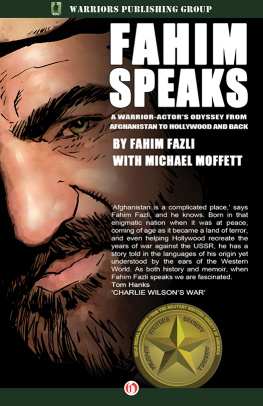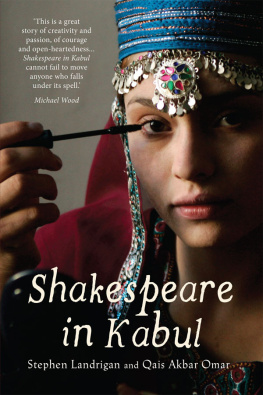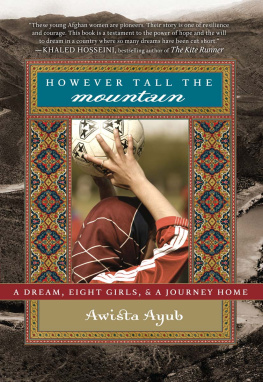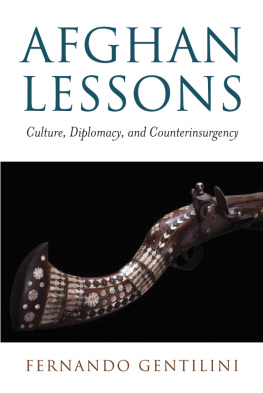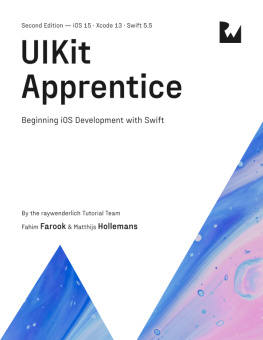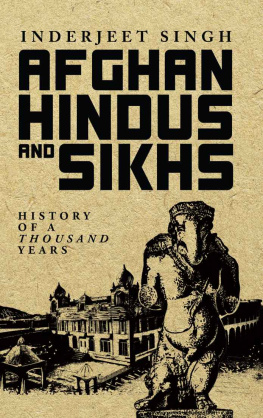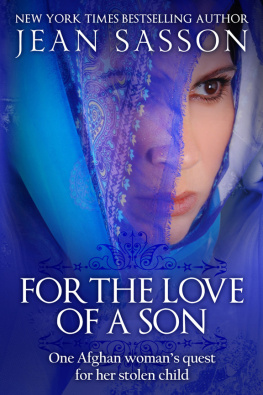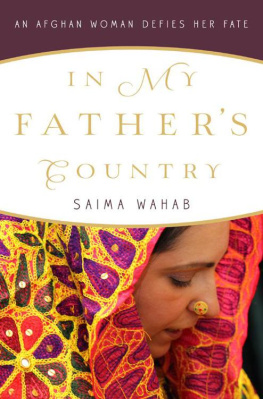
All rights reserved under International and Pan-American Copyright Conventions. By payment of the required fees, you have been granted the non-exclusive, non-transferable right to access and read the text of this ebook onscreen. No part of this text may be reproduced, transmitted, downloaded, decompiled, reverse engineered, or stored in or introduced into any information storage and retrieval system, in any form or by any means, whether electronic or mechanical, now known or hereinafter invented, without the express written permission of the publisher.
This is a work of fiction. Names, characters, places, and incidents either are the product of the authors imagination or are used fictitiously. Any resemblance to actual persons, living or dead, businesses, companies, events, or locales is entirely coincidental.
This 2013 edition distributed by Open Road Integrated Media
345 Hudson Street
New York, NY 10014
www.openroadmedia.com


To my mother, Fahima Fazli (1945-2011), and to all the women of the world
Contents
Preface
The problem in Afghanistan is that everybody there
holds a piece of a mirror, and they all look at it
and claim that they see the entire truth.
Mohsen Makhmalbaf, President of Asian Film Academy
Afghanistan.
Before 1980, most Americans knew or cared little about this impoverished, land-locked, Central Asian nation. After the Soviet Union invaded, though, Afghanistan became a flash pointone that threatened to ignite a Cold War into the flames of a World War. Throughout the 1980s, American foreign policy sought to counter the Soviet presence there. The Carter and Reagan Administrations secretly supported a Mujahedeen resistance movement that eventually led to Soviet defeat and a 1989 withdrawal from Afghanistan. The Union of the Soviet Socialist Republics imploded two years later. The dissolution of the Soviet Union ended the Cold War, beckoning a period of unprecedented world peace. Or at least many Americans believed so at the timenot understanding the unintended consequences and true legacy of our Central Asian policies.
What is most important to the history of the world? The Taliban or the collapse of the Soviet empire? asked Zbigniew Brzezinski who served as National Security Advisor to President Jimmy Carter, in a 1998 interview with Le Nouvel Observateur. Some stirred-up Moslems or the liberation of Central Europe and the end of the Cold War?
Understandably proud of Americas Cold War triumph, Brzezinski rationalized and tolerated the emergence of Islamic extremists in post-Soviet Afghanistan, even in 1998. However, in retrospect, he significantly underestimated the Talibans impact on world history. We collectively washed our hands of Afghanistan after the fall of the USSRand paid dearly for it.
While the Communist-Mujahedeen conflict in Afghanistan displaced millions of people and destabilized the region, Western leaders largely ignored the chaos in favor of their more pressing national concerns, like trade policy or common currency. Almost every country, including the U.S., slashed defense spending.
In 1992, Francis Fukuyama argued in The End of History and the Last Man that with the fall of the Soviet empire, Western liberal democracy had arrived as the ultimate form of government, in a world of diminishing conflict. Fukuyama, like other intellectuals who predicted a period of international tranquility, didnt anticipate the rapid rise of Islamofascism, or what that rise would mean to our national security.
In an August 1996 CBS News/New York Times poll, voters listed the top problems in America to be crime, the budget deficit, the economy, welfare, and jobsall domestic issues. Foreign policy came in 25th, after illegal immigration and racism. Domestic policy issues dominated the 1996 U.S. presidential campaign, which ended with Bill Clintons reelection victory over Republican Bob Dole. Their debates focused on taxes, ethics, and even tobacco use. Foreign affairs received scant attention.
That neglectful mindset changed on September 11, 2001, when Al Qaeda terrorists hijacked four airliners and killed almost 3,000 people in New York, Pennsylvania, and Washington D.C. Suddenly, the attention of Americaand the worldwas focused on Afghanistan, home to the Al Qaeda plotters.
My attention was also focused on Afghanistan. Before the end of October, I was back in a Marine Corps lieutenant colonels uniform, working on the Operations Staff at United States Central Command in Tampa, Florida. Thats where General Tommy Franks took charge of Operation Enduring Freedoms mission to overthrow the Taliban regime in Afghanistan and remove the safe haven it provided to the Al Qaeda leadership.
That mission was accomplished by Christmas. By the time I left Central Command in May, its focus was already shifting from Afghanistan to other theaters, as Americas leaders sought to maintain the initiative in what came to be known as the Global War on Terror.
However, almost nine years later, Americans were still fighting in Afghanistan, with a casualty rate that increased five-fold after President Barack Obama doubled U.S. troop levels there, following his 2009 inau guration. I returned to active duty in 2010 to again support Operation Enduring Freedom, this time as a field historian for Marine Corps University. My mission was to document Marine Corps efforts in Afghanistan. Accomplishing this mission required me to travel throughout the Marine Corps Areas of Operation in Helmand Province to interview Marines at Combat Outposts and Forward Operating Bases. Connecting with these forward-deployed Marines meant several helicopter flights, usually at night, as aircraft seldom flew without escorts during the dangerous daylight hours.
I also joined ground convoys imperiled by mines and Improvised Explosive Devices (IEDs). Before one motorized night movement, the convoy commander gathered all personnel to review signals and immediate action procedures to take should we run into an ambush or hit any IEDs. Then he held an optional prayer sessiona poignant reminder about the dangers of road travel in Afghanistan and not part of the standard convoy briefing format as taught stateside. Accustomed to the secular world of American college campuses, I found this unabashed appeal for divine protection to be sobering and humbling. The brief prayer session allowed convoy travelers to honestly and publicly acknowledge both fear and faith before driving off into the perilous Afghan night. Most of the Marines participated, including me.
The convoy got through without incident, and I spent several days interviewing members of the Second Battalion of the Second Marine Regiment (2/2), nicknamed the Warlords. Over 70 Warlords had won Purple Hearts while taking the fight to the Taliban in the Helmand River Valley, including the battalion commander, Lieutenant Colonel John E. McDonough, who was badly injured and evacuated after an IED blew up his vehicle.
The Warlords shared many accounts of life and death in Afghanistan, and the lessons I learned from them served me well as I moved from outpost to outpost.
In March of 2010, I traveled to Delaram, where Helmand, Farah, and Nimroz provinces converged. This crossroads town was strategically important, and the Third Battalion of the Fourth Marine Regiment (3/4) had been conducting combat and civil affairs operations there since the previous Octoberto great effect. District Governor Asadullah Haqdost recognized 3/4 for its work by presenting an award to its commanding officer, Lieutenant Colonel Martin Wetterauer, at a special ceremony at battalion headquarters. I attended to take photos and conduct interviews.
Next page
